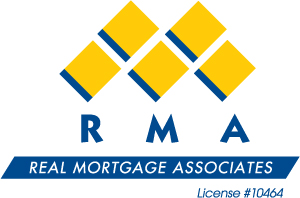Are you a Canadian homeowner over 55, considering your financial options? A reverse mortgage might be your solution to accessing home equity without monthly payments.
While there are multiple reverse mortgage providers in Canada, our clients seem to recognize CHIP reverse mortgages (Canadian Home Income Plan – provided by Home Equity Bank) by name, and not only since Peter Mansbridge is one of Home Equity bank’s most notable spokesmen.
What does CHIP mean in reverse mortgages?
In reverse mortgage, “CHIP” stands for Canadian Home Income Plan; to a loan secured against the value of your home, allowing you to access the value (or equity in your Canadian home) without selling or moving. The received money is tax-free and can be used as needed.
This guide will detail how a CHIP Reverse Mortgage works, who qualifies, and the impact it might have on your financial freedom and estate planning. We’ll navigate you through the process, benefits, and critical considerations without the fluff – providing the facts you need to inform your decision.
An overview of CHIP Reverse Mortgages
-
The CHIP Reverse Mortgage offers Canadian homeowners aged 55+ the opportunity to borrow up to 55% of their home’s value in tax-free cash without required monthly mortgage payments while maintaining full ownership of their home.
-
To be eligible for a CHIP Reverse Mortgage, applicants must be at least 55 years old, own a home worth at least $250,000, and use this home as their primary residence, with loan amounts influenced by various factors including home value and location.
-
When obtaining a CHIP Reverse Mortgage, borrowers face costs such as home appraisal fees, legal advice fees, closing and administrative fees, and typically higher interest rates than conventional loans, and the loan is repayable when the homeowner moves, sells the home, or passes away.
Decoding the CHIP Reverse Mortgage: Canada’s Most Well-Know Reverse Mortgage lender

Reverse Mortgage: CHIP is one of many options
A Canadian Reverse Mortgage is a unique financial solution that stands out from traditional mortgages. Designed specifically for Canadian homeowners aged 55 and older, this reverse mortgage loan allows you to tap into up to 55% of your home’s appraised value in tax-free cash without selling your beloved home. The CHIP Reverse Mortgage is aimed at improving your financial circumstances, offering an alternative to conventional financial solutions.
Unlike regular mortgages, there’s no requirement for regular mortgage payments. Yes, you read that right—no regular mortgage payments. So, how does this reverse mortgage work? Let’s break it down further, especially when compared to a conventional mortgage.
Check out our full Reverse Mortgage Guide for details about all types of reverse mortgages, not just the CHIP reverse mortgage,
Key Features of the CHIP Program
The CHIP Reverse Mortgage program is packed with features that make it a game-changer for Canadian homeowners aged 55 and over. One of its most attractive features is that it allows you to borrow money for up to 55% of your home’s current value. This borrowed amount is available as tax-free cash, meaning it won’t add to your tax burden.
And the best part? You can do all of this while retaining full ownership of your home, allowing you to leverage your home’s equity without having to sell your property.
Eligibility Criteria for CHIP Applicants
Now that you’re familiar with the unique features of the CHIP program, are you eligible to get a reverse mortgage and reap its benefits? To be eligible for a CHIP Reverse Mortgage, first and foremost, you must be at least 55 years old. The home used as collateral for the CHIP Reverse Mortgage must be your primary residence, meaning you must live there for a majority of the year.
Additionally, your property must have a minimum value of $250,000, with the amount you can borrow influenced by the value of your home, its location and condition, property taxes, and the loan secured by the property.
Financial Liberation Without Monthly Mortgage Payments

A couple continues to enjoy their family home with a CHIP reverse mortgage
Imagine a life without the stress of monthly mortgage payments. With a CHIP Reverse Mortgage, this can be your reality. As long as one of the original borrowers continues to live in the home, you’re not required to make monthly mortgage payments. This reverse mortgage loan offers you the golden opportunity to enhance your living standards in retirement by providing tax-free cash without requiring a move or the sale of your home.
The benefits of a Reverse Mortgage in Canada include:
-
Staying in your home
-
Retaining full ownership
-
Achieving financial freedom through accessible additional equity
-
Having money left over after the loan is repaid.
How You Receive Your Funds
The CHIP Reverse Mortgage not only provides financial liberation but also flexibility in how you receive your funds. Whether you prefer to receive a lump sum to handle a major expense or regular monthly installments to supplement your income, this reverse mortgage caters to your needs. You can even opt for a combination of both to suit your financial circumstances.
Regular monthly installments can start from as low as $1,000, with quarterly amounts beginning from $3,000. But remember, when choosing the amount to draw, you’ll need to select your preferred interest rate option.
Maintaining Home Ownership
Maintaining home ownership is a crucial factor for many homeowners when considering financial solutions. With a CHIP Reverse Mortgage, you can breathe easy. Despite borrowing against your home’s equity, you retain full ownership and title of your home. This means you can continue to live in your home and enjoy the memories it holds.
Repayment of the CHIP reverse mortgage is only required when you decide to move or sell the property. So, you can enjoy the financial benefits without uprooting your life.
The Process of Applying for CHIP Reverse Mortgages
Applying for a CHIP Reverse Mortgage is a straightforward process designed with your convenience in mind. Kickstart your application by either completing a free estimate form online or calling to speak with a reverse mortgage specialist. Our team at Canada Reverse Mortgage Centre will get in touch to discuss products and provide a detailed estimate.
You can apply conveniently from your residence, either by calling the provided number or through the online application facilitated by a representative.
Contacting a Reverse Mortgage Specialist / Broker
As you navigate the process of applying for a CHIP Reverse Mortgage, a reverse mortgage specialist will be your guiding light. HomeEquity Bank is one of the main providers of reverse mortgages in Canada, but our Canada Reverse Mortgage team is happy to talk with you about all of the reverse mortgage providers and help you choose the best option for you needs. These specialists clarify terms, conditions, and costs and instruct you to seek independent legal advice.
Independent Legal Advice Requirement
Independent legal advice is a crucial part of the CHIP Reverse Mortgage application process. This advice may be required by the lender in some provinces and territories and is essential to help you make informed decisions regarding the reverse mortgage.
Once you’ve received independent legal advice, the legal documents for the CHIP Reverse Mortgage are prepared and sent to your lawyer for finalization. This ensures that all legalities are handled professionally, giving you peace of mind.
Understanding Costs and Interest Rates
While a CHIP Reverse Mortgage brings financial freedom, it’s essential to understand the associated costs and interest rates. These include:
-
Home appraisal
-
Legal advice
-
Closing and administration fees
-
Interest rates
All of these contribute to your loan balance.
The interest rate on a CHIP Reverse Mortgage varies depending on the term chosen and is usually higher than interest costs on conventional bank mortgages. This is because there are no monthly payments, and borrowers do not need to qualify under the stress test.
Transparency in Fees

Understanding the fees associated with a CHIP reverse mortgage
When it comes to fees associated with a CHIP Reverse Mortgage, transparency is key. The closing and administrative fee is set ensuring upfront disclosure to applicants. The annual percentage rate (APR) integrates the interest rate with the closing and administrative costs, calculated over a standard period of five years.
This transparency allows you to plan your finances effectively, ensuring there are no hidden surprises.
Interest Rate Comparisons
The interest rates on CHIP Reverse Mortgages (Canada’s most popular reverse mortgage lender) are a crucial factor to consider. These rates are typically higher than those of traditional mortgages. They include additional costs such as setup or other closing costs and fees and may also include possible early repayment charges. Factors determining the rates include age, value of your home, and location, as clearly displayed on HomeEquity Bank’s website.
Two types of interest rates are offered: fixed and variable options, allowing you to choose what suits your financial situation best.
Utilizing Your Home’s Equity to Relieve Financial Stress

Alleviate financial stress by leveraging your biggest asset with a reverse mortgage
One of the significant advantages of a CHIP Reverse Mortgage is the ability to utilize your home’s equity to alleviate financial stress. With flexible fund usage and the potential to preserve your retirement savings, this reverse mortgage allows you to manage your finances with ease and confidence.
Whether you’re dealing with unexpected expenses, planning a dream vacation, or supporting your grandchildren’s education, the funds from a CHIP Reverse Mortgage can be a lifeline.
Flexibility in Fund Usage
The funds from a CHIP Reverse Mortgage can be used for a wide variety of purposes. From personal expenses and debt consolidation to financing home renovations to increase the value of your home, the choice is yours. These funds are tax-free, meaning they won’t add to your tax burden.
Unexpected expenses or providing monetary help to family members can also be covered conveniently. This flexibility makes the CHIP Reverse Mortgage a versatile financial solution that supports your lifestyle in retirement.
Preserving Retirement Savings
Accessing home equity through a CHIP Reverse Mortgage can be a strategic choice to extend the longevity of your retirement savings. By providing an alternative source of funds, it prevents the need to deplete other retirement assets. Moreover, it does not affect Old Age Security or Guaranteed Income Supplement government benefits, allowing you to utilize the loan without impacting your entitlements.
Even after the loan is repaid, borrowers typically retain the majority of their home’s equity, ensuring that you’re still left with a significant portion of your home’s value.
Repayment: What Happens When You Settle A Reverse Mortgage?

What to expect when settling your reverse mortgage
Repayment of a CHIP Reverse Mortgage is a crucial aspect to understand. This repayment is required when you decide to move or sell your home. The majority of homeowners typically utilize the funds from selling their home to pay off the remaining balance on their reverse mortgage. This allows them to handle any outstanding financial obligations related to the loan..
In the unfortunate event of the homeowner’s passing, lenders typically allow a period of 3 to 12 months for the reverse mortgage to be repaid before considering foreclosure. The good news is that the No Negative Equity Guarantee protects heirs, ensuring they don’t have to pay more than the fair market value of the home if the loan balance exceeds the home’s value at the time of repayment. This allows them to settle the reverse mortgage early without additional financial burden.
Early Repayment Considerations
While the CHIP Reverse Mortgage offers flexibility in repayments, it’s important to consider potential charges for early repayment. Yes, prepayments are possible, allowing for flexibility in loan repayment. However, a prepayment charge may apply if the CHIP Reverse Mortgage is repaid before scenarios such as moving, selling your home, or passing.
On a brighter note, prepayment fees may be lowered for homeowners who move to a long-term care facility, providing some relief in specific life circumstances.
Navigating the Implications for Estate Planning
Estate planning is an essential aspect to consider when opting for a CHIP Reverse Mortgage. Upon the homeowner’s passing, heirs have the responsibility to repay the CHIP reverse mortgage. They also have the option to obtain a standard mortgage on the property to pay out the reverse mortgage at that time.
However, the requirement to sell the home to repay a CHIP reverse mortgage can significantly reduce the inheritance, possibly leaving little to no remaining home equity for the heirs. Therefore, clear instructions in the deceased’s will regarding the repayment of the reverse mortgage are crucial to prevent confusion and disputes among heirs.
Advantages and Caveats of CHIP Reverse Mortgages
Like any financial product, CHIP Reverse Mortgages come with their share of advantages and caveats. The advantages include financial freedom, long-term cost-effectiveness, and no requirement for monthly payments. However, these mortgages typically carry higher interest rates than traditional mortgages, leading to an increasing loan balance over time.
Moreover, securing a CHIP Reverse Mortgage may affect your ability to obtain other financing options secured by the home, such as HELOCs. As with any financial decision, it’s crucial to understand all associated costs and potential impacts before proceeding.
Long-Term Cost Effectiveness
When considering the cost-effectiveness of a CHIP Reverse Mortgage, it’s essential to look at the long term. An important reassurance is the No Negative Equity Guarantee, which ensures that the loan balance will never exceed the fair market value of the home, guaranteed in writing by the lender. On average, homeowners with a CHIP Reverse Mortgage retain over 50% of their home’s value even after the loan is repaid.
These factors ensure that a CHIP Reverse Mortgage is a long-term cost-effective solution compared to other financial products.
Impact on Future Borrowing
While a CHIP Reverse Mortgage can bring immediate financial relief, it’s important to consider its potential impact on future borrowing. Here are some key points to keep in mind:
-
The absence of monthly repayments and the ability to maintain property ownership could influence your ability to take out future loans.
-
The interest from the reverse mortgage compounds over time, leading to a significant increase in the loan balance.
-
This could affect the equity available for future borrowing.
Moreover, heirs who inherit a property with a CHIP reverse mortgage must consider the following:
-
The impact of the loan on their finances
-
Their ability to sell the property
-
Their ability to repay the loan
-
Their ability to take ownership
Summarizing CHIP Reverse Mortgages
In conclusion, the CHIP Reverse Mortgage is a unique financial solution designed specifically for Canadian homeowners aged 55 and older. It offers the opportunity to tap into home equity and obtain tax-free cash without selling your home or making regular mortgage payments.
Flexible fund usage, no monthly payments, and full home retention present a way to enhance living standards in retirement. However, like any financial product, it’s crucial to understand all costs, interest rates, and potential impacts before proceeding. As always, seek independent legal advice to make an informed decision that aligns with your financial needs.
Frequently Asked Questions
What is a chip reverse mortgage loan?
A CHIP mortgage loan is a type of reverse mortgage that allows you to access the value of your home without having to sell it or move away. The money you receive from this loan is tax-free and can be used at your discretion.
How do I get out of a chip reverse mortgage?
To get out of a chip reverse mortgage, simply contact HomeEquity Bank and inform them of your desire to pay off the mortgage. They will provide you with details on any prepayment penalties and the total final mortgage amount.
What is the interest rate on a chip reverse mortgage in Canada?
The interest rate on a CHIP reverse mortgage in Canada is based on the Home Equity Bank Prime Rate, which is currently at 7.2%. For the lowest rates, it is advisable to check with Canada’s two national reverse mortgage lenders.
What is the downside of a chip reverse mortgage Canada?
The downside of a chip reverse mortgage in Canada is that the interest compounds and gradually reduces your equity, and there is a prepayment penalty if you pay off the mortgage within the first few years. Additionally, the interest rates are higher than with a traditional mortgage. These factors can lead to a decrease in your home equity over time.
What other options are there to CHIP reverse mortgages?
Here we compare CHIP (by Home Equity Bank) with Bloom Financial reverse mortgages. Our team of reverse mortgage brokers at Canada Reverse Mortgage Centre is happy to help you explore the differences and find the best financial solution for your retirement.
Are reverse mortgages different in Canada from the United States?
Yes, different rules apply (for instance, in Canada, you can activate your reverse mortgage at 55, while in the United States, the minimum age is 62). Be sure you have accurate information for your Canadian reverse mortgage with our Guide To Canadian Reverse Mortgages.









